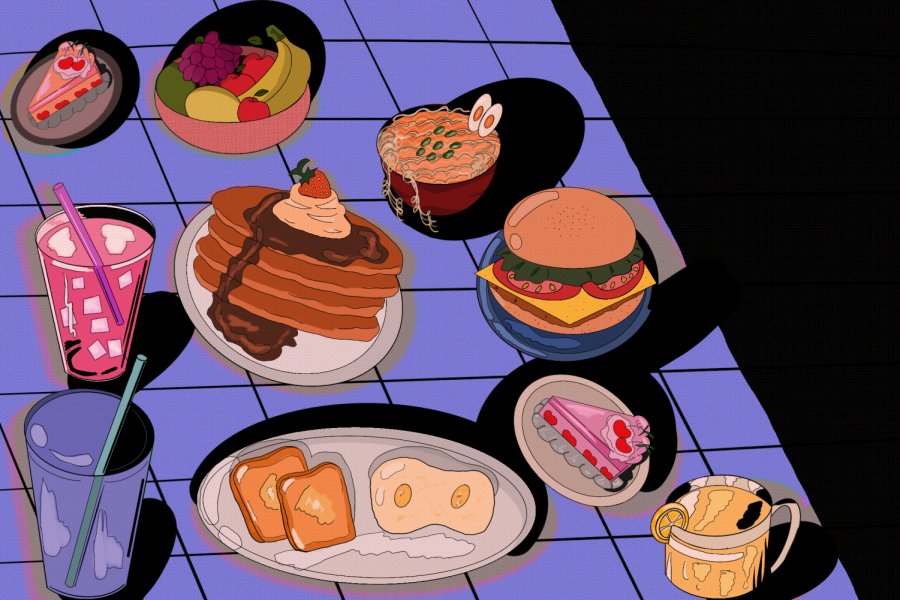Equip dining halls to feed students with alternative diets
March 22, 2022
As I scanned my UT ID card in the Kinsolving Dining Hall, I felt that food would surely bring more joy to my day. However, I realized that as a vegetarian, the lack of options, bland taste and inconsistent menu choices made it just another day of eating in the UT dining halls.
For students with alternative diets, dissatisfying dining hall experiences seem to be the norm. Alternative diets include vegans, vegetarians and people with allergies or other dietary restrictions. UT needs to better represent and satisfy students with alternative diets to ensure all students are receiving proper nutrition.
Josue Rodriguez, the assistant director of marketing and communications at University Housing and Dining, said the dining hall menus are created on a semester basis.
“Students with alternative diets can visit the dedicated vegan line in Jester City Limits (JCL), the Fresh and Simple Tastes line in J2 that includes vegan options, but is not strictly vegan, or visit the vegan line in the Kinsolving Dining Hall,” Rodriguez said.
Even though the dining hall provides these options, students with alternative diets continue to express their dissatisfaction.
English freshman Gayle Hendrie, who has been vegan for over three years and has a peanut allergy, spoke about the lack of food labeling.
“I think the main issue is miscommunication … If I’m going to JCL, and they have that specific thing in line, I know that it’s vegan, but J2, they don’t always have it labeled. And they don’t always have the allergens … So I can’t be absolutely sure (of) what is vegan and what it has in it. Especially in the side areas too, they’ll sometimes have things, and I’ll have no idea what’s in it.” Hendrie said.
This has been a common issue for many students with differing dietary needs.
Chris Canning, a vegan biochemistry first year who has a soy allergy, pointed out the inconsistencies between the online and in-person menu.
“A lot of their key vegan and vegetarian food options were listed online, but they would be unavailable in person. The online menu made it look better than it actually was,” Canning said.
J. Keith Morrison, director of culinary, explained the reasoning behind the inconsistencies.
“Due to supply chain issues, our vendors are not receiving what they order from a manufacturer. This, in turn, changes the availability of product on our end which leads to menu substitutions,” Morrison said.
Supply chain issues don’t justify the disparity between the online and in-person meals.
Students are left wondering if the food meets their dietary needs as staff lack awareness of ingredients. Canning recalled a moment that occurred in JCL.
“They put out breadsticks (in the vegan line) but weren’t listed online for being vegan. When I asked one of the workers, they said they didn’t know, but (knew) they didn’t put butter on it, so they assumed they were vegan,” he said.
Canning also touched on his difficulties with receiving accommodations from the dining hall. It took 10 days to hear back from the UT dietician, and he underwent a month of having to provide proof of his dietary restrictions. Even after undergoing numerous changes, his meals consist mostly of bland rice and beans.
UT’s dining halls must cater to people with alternative diets. They need to inform their workers of the food being served, accurately portray the in-person menu online, facilitate the accommodations process and provide a variety of cuisines for students with alternative diets.
Requena is an Environmental Science first-year from Houston, Texas.



